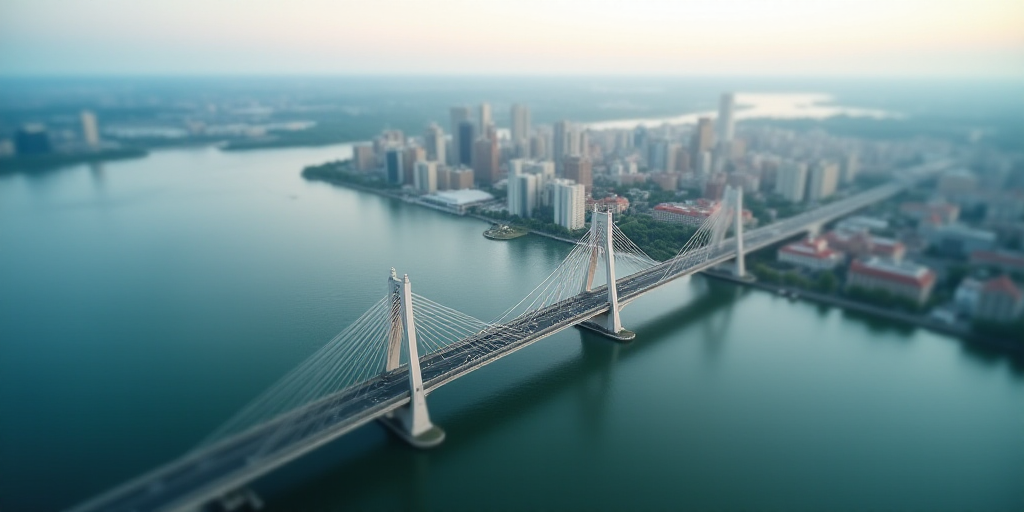The Dispute
Guyana, a small South American nation with the world’s largest oil reserves per capita, finds itself navigating a delicate balance between its neighbor Venezuela and its new ally, the United States. Venezuela claims two-thirds of Guyana’s territory, while the U.S., through ExxonMobil, leads the ongoing oil boom.
The Contested Region
The phrase “Essequibo is Guyana’s” or “Essequibo ah we own” (in English or Creole) is displayed on signs across the country for over a year. Nearly all presidential candidates, including current President Irfaan Ali, have addressed this issue, with Ali making it the central theme of his campaign.
Maduro’s government reactivated its claims on the territory starting in 2019. In 2023, they held a referendum to seek popular support for their campaign. In 2025, they chose a supposed governor and legislators for this 159,500 square kilometer region over which Caracas exercises no power.
Guyana asserts that its border, dating back to the British colonial era, was ratified in 1899 by the Paris Arbitration Treaty and requests that the International Court of Justice (ICJ) confirm it. Venezuela, which does not recognize the ICJ’s authority, insists that the Essequibo river should be the natural border, as it was in 1777 when it was a Spanish colony.
Washington-Georgetown: Realpolitik
On Sunday, Guyana reported being attacked with “shots from the Venezuelan side” of the border river Cuyuní. Caracas called this a false claim. Such accusations are common but heighten the ongoing tension between the two nations, who pledged not to resort to force during an unusual meeting between Ali and Maduro in San Vicente y las Granadinas in December 2023.
Despite Ali’s assertion on Monday that Guyana’s forces were “on alert and ready,” the country holds little weight against its much larger neighbor with 30 million inhabitants and a larger military.
“The enemies of my enemies are my friends,” the saying aptly applies to Guyana, which has drawn closer to the United States despite its left-leaning past.
The U.S., which has been trying to oust Maduro for years, has repeatedly affirmed its support for Guyana. U.S. Secretary of State Marco Rubio stated in March in Georgetown, “If they (the Venezuelans) attack Guyana or ExxonMobil (…) It would end badly for them.”
Pragmatism
Ocendy Knights, a 33-year-old from Georgetown, believes that Venezuela has reignited its claims due to the discovery of offshore oil near the disputed territory. “The Essequibo has always been part of Guyana. Venezuela claims it for the oil,” she asserts.
Oil lies at the heart of the matter. Not only does it significantly impact U.S.-Venezuela relations (Washington imposed an oil embargo on Maduro with licenses for Chevron), but many believe that the U.S. exploits Guyana’s fear of Venezuela to impose its conditions.
Activist Chris Ram from civil society believes that the Guyanese government granted overly favorable oil contracts to ExxonMobil because “there are broader issues. The government treats Exxon with kid gloves.”
“In some way, Guyana is pragmatic. We cannot match Venezuela or Maduro and his army. We need the U.S.,” Ram emphasizes.
Maduro frequently accuses Ali of being a “puppet” of ExxonMobil. Elías Ferrer, an oil expert and founder of Orinoco Research, also believes that Georgetown accepted lower oil exploitation revenues, anticipating potential U.S. assistance.
Ferrer also notes that, despite having the world’s largest oil reserves per capita, Guyana’s reserves are still smaller than those of major producers. With an estimated 11,000 million barrels, the country “doesn’t weigh much” in the market, he added.
Key Questions and Answers
- What is the dispute between Guyana and Venezuela about? The main point of contention is the Essequibo region, which Venezuela claims but Guyana considers its own territory. The dispute dates back to colonial times and has been further complicated by recent oil discoveries.
- Why is the U.S. involved in Guyana’s situation? The U.S. has strategic interests in the region, including countering Venezuelan influence and ensuring stability for its ally Guyana. Additionally, U.S. oil company ExxonMobil is actively involved in Guyana’s oil sector.
- How does the oil boom affect Guyana’s relationship with Venezuela and the U.S.? The oil boom has intensified Guyana’s tensions with Venezuela, which claims the contested Essequibo region. Simultaneously, it has drawn Guyana closer to the U.S., which supports its ally and seeks to counter Venezuelan influence.
- What are the concerns regarding Guyana’s oil contracts with ExxonMobil? Critics argue that Guyana has granted overly favorable contracts to ExxonMobil, potentially compromising its long-term interests and sovereignty over its natural resources.






